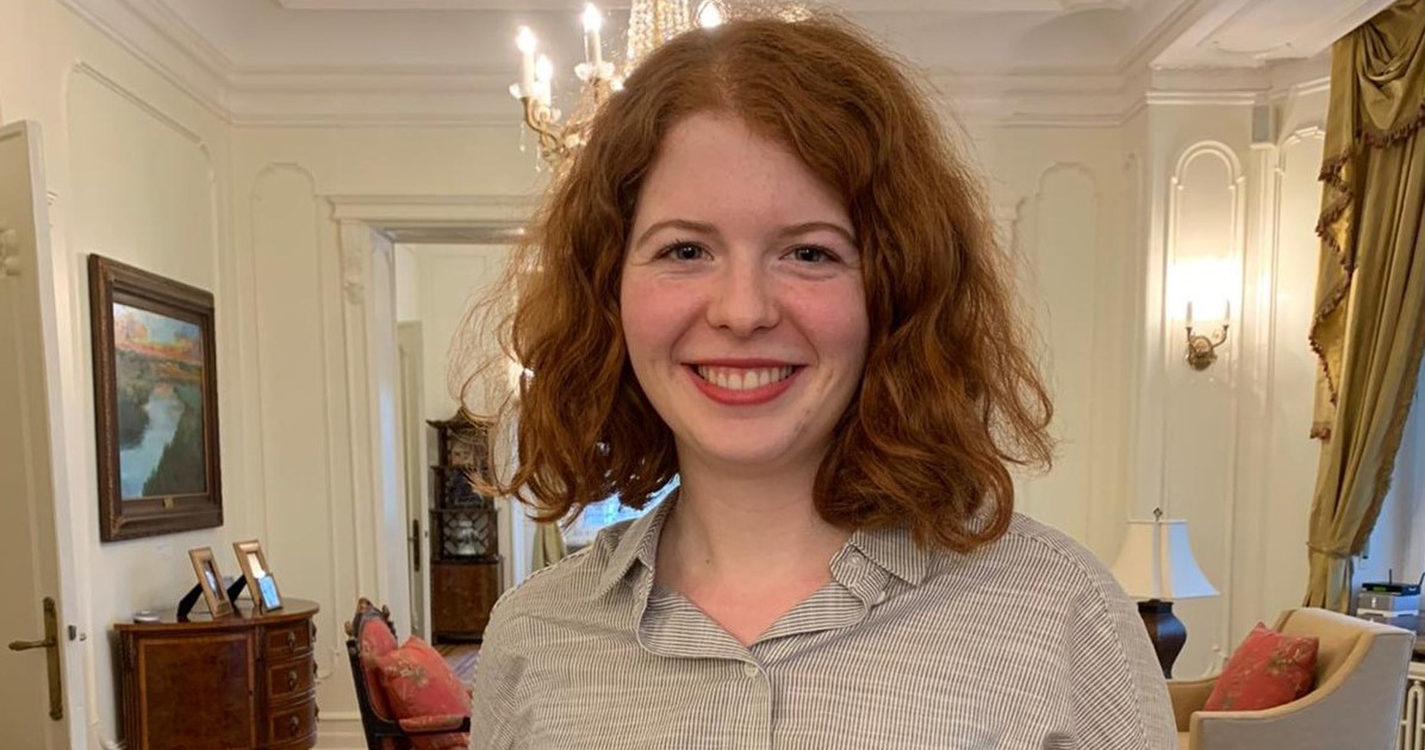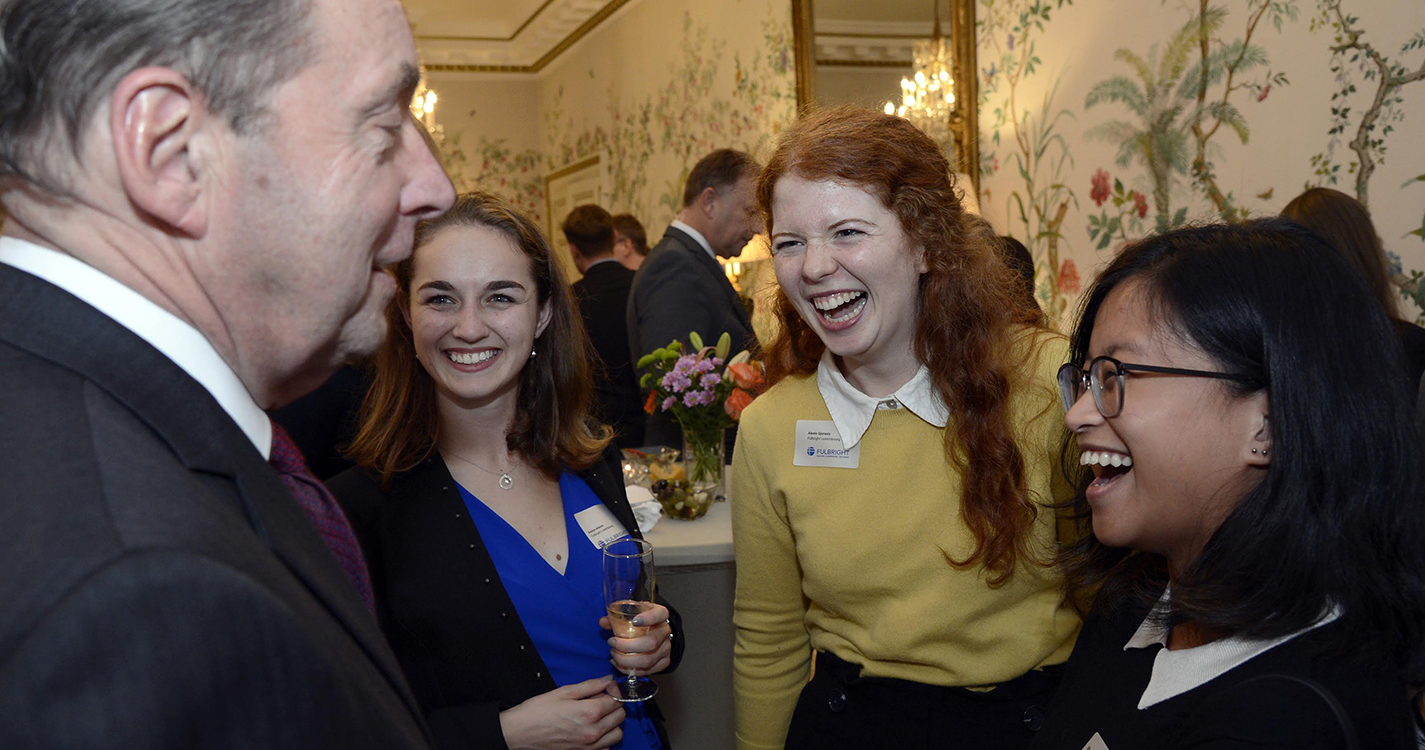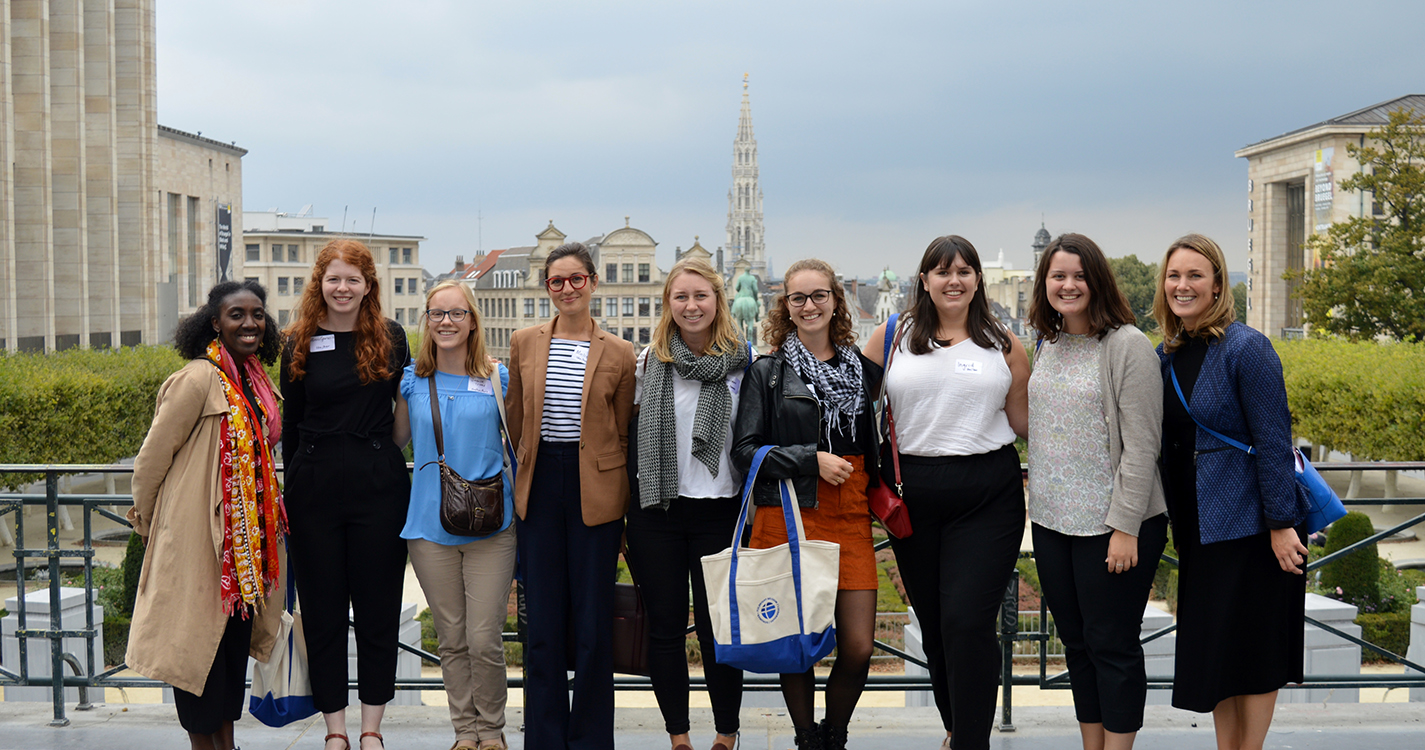At a secondary school in central Luxembourg, where the native languages include Luxembourgish and many others, Alexis Gjurasic ’19 asked her high school students to recite Edgar Allan Poe’s “The Raven” in English.
The lesson ended on a sentimental note. No further language classes were planned for these students, so it represented their final opportunity to study the language in an academic setting, said Gjurasic. What she didn’t realize is that it was her last moment in that classroom, too.
Gjurasic had been on a Fulbright English Teaching Assistantship since September, earning the distinction as the first Willamette Fulbright grantee in Luxembourg. In March, the coronavirus outbreak changed her plans.
Literature and history in Luxembourg
As required by the international education program, Gjurasic had divided her time between teaching students at Lycée Josy Barthel, a school in the city of Mamer, and assisting a professor in English Studies classes at the University of Luxembourg in Esch-sur-Alzette.
Her background in anthropology and French and Francophone Studies at Willamette — plus some advanced high school literature courses — prepared her for co-teaching university lessons on Jim Crow laws to Nathaniel Hawthorne’s “The Scarlet Letter.” She planned courses, shadowed the professor and helped restructure an American Studies class. At the secondary school, she taught lessons on English, English literature, American history, culture and traditions.
When the coronavirus ramped up in Italy in early March, closing schools and universities, Luxembourg followed suit. Within days, the Fulbright Commission strongly encouraged grantees to leave the country and return home, bringing an official end to their program.
“My first reaction was anger. I was so mad my time was going to be cut short — I had all these plans to do more traveling, make more connections with my students, do more teaching,” Gjurasic said. “I didn’t have time to say the goodbyes I would have liked to.”
On March 17, she headed to the airport with four other grantees, all headed to London. From there she flew back to Olympia, Washington, with another grantee who lives in Eugene.
“The fact that we were together really made a big difference, especially not knowing what the situation was going to be at the airport in Seattle,” she said.
Once home, she self-isolated for two weeks. Then she continued to deliver college classes, despite no longer being on contract, and other activities she’d picked up in Luxembourg that moved online — singing in a multigenerational choir and finishing a university sustainability course. She even started tutoring a Luxembourg teenager on writing.
Gjurasic is now looking ahead. Her goal is a program assistant job at a nonprofit in the Pacific Northwest, preferably focused on environmental justice, immigration or college access. In the meantime, she’ll be volunteering on a congressional campaign.
“I also plan to network, job search and catch up with my family while maintaining relationships with my Fulbright cohort, my colleagues and the friends I met in Luxembourg from around the world,” she said.




